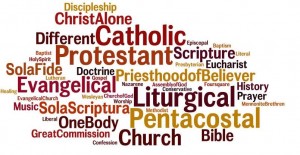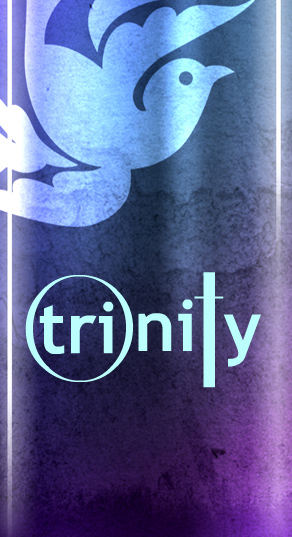ABOUT US
Foundations
Trinity is a church that is part of a Christian denomination known as the Reformed Church of America (RCA). While Trinity is a denominational church in this sense, its roots are non-denominational. Its culture today continues to reflect that non-denominational history. Now that we live in a largely post-denominational society that culture can be expected to continue.
In fact, Trinity grew out of an ecumenical Sunday School that served the community for 79 years before becoming a church. Trinity is unique in this sense since Sunday Schools usually grow out of a church. Once Trinity’s building was erected , the church opened its doors to community meetings of all kinds free of charge. It was, in many ways, a community center, the heartbeat of Old Tappan.
So Trinity today stands on two historical foundations:
- Providing Christian education and spiritual formation for children and youth.
- Being a servant to the larger community and acting as a hub for community groups of all kinds.
A New Chapter
 Today, Trinity is challenged with continuing to build on the foundations of its own history and to be “reformed and always reforming” – always changing and adapting while remaining true to our roots. Trinity is tasked with moving beyond what some people think is the way “things have always been done”. The goal is to remain relevant and impactful for the children and youth in our sphere of influence, and to live at the heart of the community through service. There is a saying that “You can’t start the next chapter of your life if you keep re-reading the last one”. We are writing a new chapter and we hope you will be a part of it.
Today, Trinity is challenged with continuing to build on the foundations of its own history and to be “reformed and always reforming” – always changing and adapting while remaining true to our roots. Trinity is tasked with moving beyond what some people think is the way “things have always been done”. The goal is to remain relevant and impactful for the children and youth in our sphere of influence, and to live at the heart of the community through service. There is a saying that “You can’t start the next chapter of your life if you keep re-reading the last one”. We are writing a new chapter and we hope you will be a part of it.Why are there so many denominations?
Aren’t we all one church?
 As mentioned, Trinity is historically non-denominational and only joined the Reformed Church in America in 1953. The RCA, as a denomination, has long held that there is one “universal, catholic church,” meaning that all Christian believers are united in their belief in Christ as our risen Lord. Historically, however, the sinfulness of humankind has produced splits within the Christian community, creating denominations and organizations that act independently of one another. The RCA remains committed to rejoining the “body of Christ” and works toward this goal through ecumenical efforts on both the congregational and denominational levels.
As mentioned, Trinity is historically non-denominational and only joined the Reformed Church in America in 1953. The RCA, as a denomination, has long held that there is one “universal, catholic church,” meaning that all Christian believers are united in their belief in Christ as our risen Lord. Historically, however, the sinfulness of humankind has produced splits within the Christian community, creating denominations and organizations that act independently of one another. The RCA remains committed to rejoining the “body of Christ” and works toward this goal through ecumenical efforts on both the congregational and denominational levels.
Formula of Agreement
Between the Evangelical Lutheran Church in America, the Presbyterian Church (U.S.A.), the Reformed Church in America, and the United Church of Christ on Entering into Full Communion on the Basis of A Common Calling
In 1997 four churches of Reformation heritage will act on an ecumenical proposal of historic importance. The timing reflects a doctrinal consensus which has been developing over the past thirty-two years coupled with an increasing urgency for the church to proclaim a gospel of unity in contemporary society. In light of identified doctrinal consensus, desiring to bear visible witness to the unity of the Church, and hearing the call to engage together in God’s mission, it is recommended:
That the Evangelical Lutheran Church in America, the Presbyterian Church (U.S.A.), the Reformed Church in America, and the United Church of Christ declare on the basis of A Common Calling and their adoption of this A Formula of Agreement that they are in full communion with one another. Thus, each church is entering into or affirming full communion with three other churches.
More About Us



